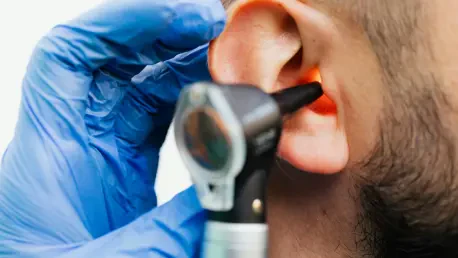The field of medicine has continually evolved, embracing new technologies and methods to tackle complex health issues. One of the promising advancements in recent years is precision medicine, an approach tailoring medical treatment to the individual characteristics of each patient. This method is a sharp departure from the conventional model, where treatments are designed for the average patient without considering genetic differences. The story of Kyle Patrick Muldoon Jr., affectionately known as KJ, illustrates the groundbreaking potential of this approach. Diagnosed with the rare genetic disorder carbamoyl phosphate synthetase 1 (CPS1) deficiency, KJ’s journey reflects hope and innovation. CPS1 deficiency severely disrupts the body’s ability to process proteins, often leading to life-threatening consequences. Previously, a liver transplant was the only remedy, and due to KJ’s age, it wasn’t a viable option. While temporary measures like a low-protein diet and medications were employed, the prospect of genetic therapy presented a revolutionary solution.
The Promise of Genetic Therapy
Genetic therapy represents a significant leap forward, aiming to correct genetic disorders at their root cause. The development of CRISPR-based base editing technology has significantly advanced this field. Unlike earlier methods that involved unpredictable insertions and deletions, base editing allows precise and target-specific modifications to DNA. BEAM Therapeutics and Integrated DNA Technologies have been pivotal in fostering these advancements, with KJ’s case serving as a pioneering application of this technology. The journey began with the identification of KJ’s specific genetic mutations responsible for his condition. This step was crucial in designing a customized treatment plan. The procedure required extensive pre-clinical testing on animals such as mice and monkeys to establish safety and efficacy. The speed and efficiency of the U.S. Food and Drug Administration (FDA) in approving this individualized treatment were commendable, prioritizing the urgent nature of the case over conventional timelines. By the time KJ was six months old, he received the groundbreaking therapy, administered intravenously through a lipid nanoparticle delivery system.
As the treatment progressed, KJ exhibited significant improvements, notably the ability to consume protein without dangerous ammonia spikes. This outcome highlighted how precision medicine could dramatically enhance quality of life by addressing specific genetic anomalies. While the therapy did not completely cure KJ, it marked a substantial reduction in the disease’s severity, setting a precedent for genetic therapy’s effectiveness against rare disorders. Beyond its implications for CPS1 deficiency, this case underscores a broader paradigm shift in medical science. Personalized medicine not only offers hope for rare conditions but also points to a future where treatments are increasingly tailored to individual genetic profiles. However, translating these groundbreaking insights into widespread clinical practice presents several challenges that must be addressed to fully harness this technology.
Regulatory and Systemic Challenges
The application of precision medicine in clinical settings faces numerous obstacles, particularly in regulatory and systemic areas. The regulatory frameworks, primarily led by the FDA, must evolve to accommodate the swift approval of genetically tailored therapies. Traditional drug approval processes are often too slow for the rapid advancements required in precision medicine. For precision medicine to reach its full potential, a streamlined regulatory approach is essential. Furthermore, the healthcare system itself requires a significant overhaul to integrate genetic testing and artificial intelligence-powered diagnostics into routine practice. Facilitating quick diagnoses and crafting personalized treatment plans can drastically improve patient outcomes. These systemic changes demand collaboration across the healthcare spectrum, from policymakers to medical professionals and biotechnological innovators. Financial considerations also play a critical role in the widespread adoption of precision medicine.
Developing and distributing personalized therapies can be costly, especially for rare genetic disorders that do not present a large market to recoup development costs. Innovative financial models are needed to support the research, development, and delivery of these therapies to ensure they are accessible to all patients in need. These economic challenges are intertwined with the broader need for a healthcare paradigm that sees patient care as an integrated and personalized process. Addressing these issues can catalyze the transition from promising case studies to routine, lifesaving interventions. The path forward requires a concerted effort to integrate advanced genetic technologies seamlessly with existing healthcare frameworks, fostering an environment where precision medicine becomes the standard rather than the exception.
Transforming Medicine: A New Hope
The medical field has consistently transformed, integrating novel technologies and methods to address complex health challenges. Precision medicine stands out as a notable advancement, focusing on customizing treatment based on each patient’s individual characteristics. Unlike the traditional approach, which designs treatments with the average patient in mind, precision medicine considers genetic variances as crucial factors. The journey of Kyle Patrick Muldoon Jr., fondly referred to as KJ, showcases the pioneering promise of this approach. KJ, diagnosed with the rare genetic disorder carbamoyl phosphate synthetase 1 (CPS1) deficiency, embodies the hope and innovation within precision medicine. This disorder severely affects the body’s protein processing capabilities, often leading to dire consequences. Previously, a liver transplant was the sole remedy, but KJ’s age made this impractical. Although temporary solutions like a low-protein diet and medications were used, genetic therapy offered an unprecedented and transformative solution.









